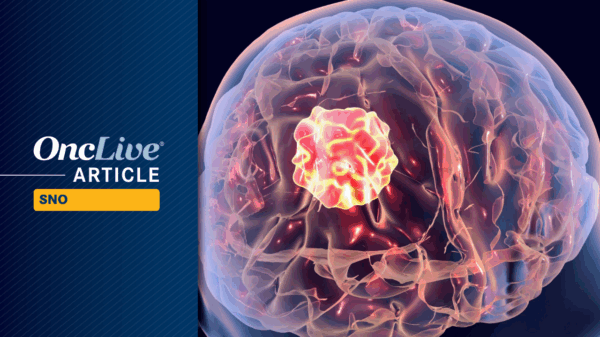Every year, tens of millions of people worldwide grapple with depression, a condition that can range from mild to debilitating. While prescription medications offer relief for many, side effects, costs, and inconsistent results leave patients and clinicians searching for alternative solutions. A recent study suggests that a simple, cost-effective remedy might lie in an unexpected source: vinegar.
The study, conducted by a team of nutrition researchers led by Arizona State University dietitian Haley Barrong, explored the potential of vinegar to alleviate depressive symptoms. The researchers recruited 28 overweight but otherwise healthy adults, dividing them into two groups. One group consumed two tablespoons of red wine vinegar diluted in water twice daily, while the other took a capsule containing only a trace of vinegar.
Exploring Vinegar’s Impact on Depression
Vinegar has long been a staple in folk remedies, celebrated for its ability to regulate blood sugar and enhance flavors without adding salt or fat. However, its potential impact on mental health has remained largely unexplored until now. The Arizona State University study aimed to fill this gap by investigating whether regular vinegar consumption could influence mood-related chemistry and subjective feelings of depression.
Over four weeks, participants completed the Center for Epidemiological Studies Depression questionnaire (CES-D) and the Patient Health Questionnaire-9 (PHQ-9). While CES-D scores showed little change, the PHQ-9 results were more promising. Participants in the vinegar group reported a 42 percent reduction in depressive symptoms, compared to an 18 percent decrease in the pill group.
“This data provides additional support that daily vinegar ingestion over four weeks can improve self-reported depression symptomology in generally healthy adults and that alterations in [vitamin B3] metabolism may factor into this improvement,” the study authors noted.
The Biochemical Pathways Behind Vinegar’s Effects
The researchers also collected blood samples to observe biochemical changes. The most notable finding was an 86 percent increase in nicotinamide, a form of vitamin B3 involved in the NAD⁺ salvage pathway, crucial for cellular energy recycling. Higher nicotinamide levels are associated with reduced inflammation, a factor that has drawn psychiatric interest.
Additional shifts were observed in metabolites such as isoleucine, a branched-chain amino acid, and isobutyric acid, suggesting that vinegar may influence broader metabolic networks linked to mood regulation. These findings highlight the need for further research into vinegar’s potential as an adjunct therapy for depression.
“Depressive disorders are the most prevalent mental health conditions in the world,” the researchers wrote. “The commonly prescribed antidepressant medications can have serious side effects, and their efficacy varies widely. Thus, simple, effective adjunct therapies are needed.”
Mechanisms of Mood Enhancement
Several mechanisms could account for the modest improvements observed in the study. Acetic acid, the primary component of vinegar, activates AMP-activated protein kinase, an energy sensor linked to NAD⁺ production. Increased NAD⁺ levels enable brain cells to repair DNA damage more effectively and maintain healthy mitochondria.
Another potential mechanism involves the gut. Acetic acid may promote the growth of beneficial bacteria that produce neurotransmitter precursors, creating a gut-brain feedback loop that many neuroscientists now consider essential for emotional balance. Previous lab work in mice has demonstrated that boosting NAD⁺ protects neurons from stress hormones, while human studies have linked higher dietary vitamin B3 with a lower risk of depression.
Implications and Future Research
While the study’s findings are promising, vinegar is not a standalone treatment for depression. The experiment was limited to a month, involved individuals with mild symptoms, and lost some statistical significance after adjusting for baseline scores. Nonetheless, incorporating vinegar into one’s diet is inexpensive and poses minimal risks for most adults.
“Future research examining the effects of vinegar administration in clinically depressed or at-risk populations, and those on antidepressant medications, is warranted,” the authors concluded. “A focus on mechanisms and large patient samples will strengthen the science and provide the evidence to more firmly demonstrate vinegar’s role in health promotion.”
Until larger trials are conducted, dietitians may advise clients to incorporate two tablespoons of red wine or apple cider vinegar into meals, ensuring it is diluted and followed by rinsing the mouth with water to protect teeth. Those interested in trying this routine might start by adding vinegar to dressings or mixing it into a glass of water before meals. However, individuals with acid reflux, kidney issues, or those on medication should consult a healthcare professional first.
The notion that a common kitchen staple like vinegar could influence mood underscores the intricate connection between body and mind. While vinegar will never replace professional treatment, its potential to improve mood, especially for those hesitant to use pharmaceuticals, warrants further investigation.
The full study was published in the journal Nutrients.
—
Like what you read? Subscribe to our newsletter for engaging articles, exclusive content, and the latest updates.
Check us out on EarthSnap, a free app brought to you by Eric Ralls and Earth.com.



































































